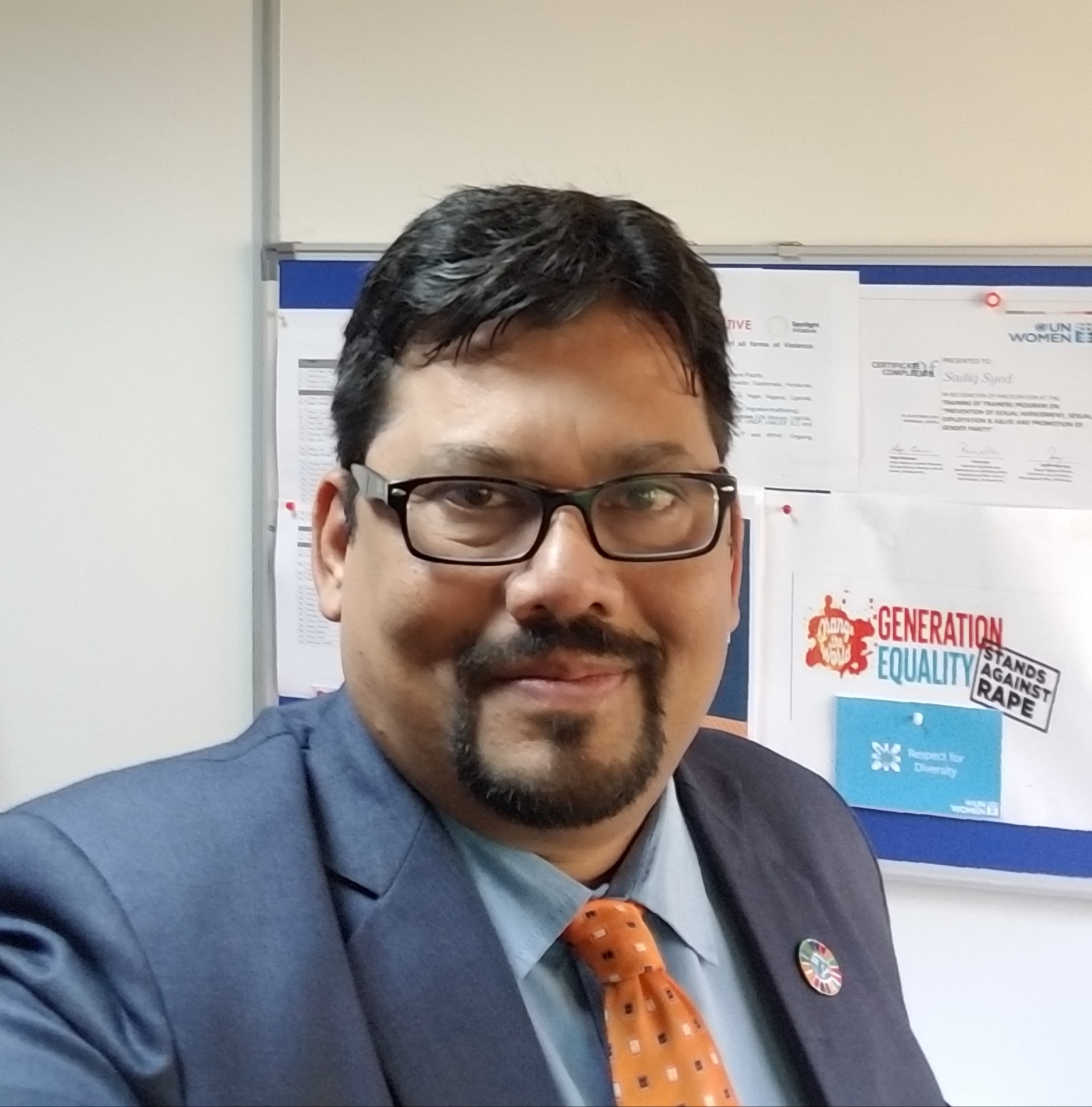Expert’s Take: ‘...isolation that is one consequence of social distancing is likely to contribute to heightened risk of Gender-based violence (GBV)’.
Date:

Syed Sadiq is the Regional Program Manager for Ending Violence Against Women and Girls (EVAW/G) with the UN Women East and Southern Africa and brings 25 years’ experience working on EVAW and specializes in developing VAW prevention and response programs, specifically in establishing 24x7 hotlines, one stop centres, shelters and multi-sectoral responses. Photo: UN Women
Access to 24x7 Hotline, Chat, SMS and online Counselling Services: Need of the Hour
With the onset of Covid-19 globally and in Africa, the “social distancing” is one of the recommended strategies to contain the virus. The restricted movement coupled with isolation, economic and social stress are the consequence of social distancing, which is likely to contribute to heightened risk of Sexual and Gender Based Violence (SGBV). Adding to this, with schools closed, girls out of schools are now prone to gender-based violence, early/forced marriage, female genital mutilation, unwanted pregnancies and HIV infections and consequential school-dropout, among others. Limited economic opportunities will likely to increase child labor, exploitation of women and girls including trafficking, sexual exploitation and abuse. According to the Kenya National Council on Administration of Justice there is a significant spike in sexual offences in many parts of the country.Sexual offences such as rape and defilement have constituted more than 35% of all reported cases. Similarly, the GBV Command Centre in South Africa recorded a spike in gender based violence cases reported during the lockdown during 27th March to 16th April with a total of 10,660 through phone calls, 1503 through unstructured supplementary services data (USSD) and 616 SMSs. On 16th April alone the Centre has received 674 cases. In Uganda, in February a total of 2344 GBV cases were registered and the numbers increased to 2808 in March 2020. Countries in the region also reported increase in cases of trafficking in women and children in which one of the countries has reported trafficking of 27 women and girls aged between 12 - 26 years, who were rescued and resettled with the intervention of the law enforcement agencies.
UN Women’s recent mapping shows that at least in 90% of ESAR countries there are specific Helplines for COVID information, Hotlines for GBV reporting and referral services available. However, due to Covid restrictions some of these hotlines are not available 24x7 or lack the chatting, SMS and online counselling facilities. To overcome the situations where the abusive spouse and family at home, the victim/survivor lack the privacy to reach relatives, friends and the voice hotline, UN Women recommends to the service providers to ensure access to “24x7 Hotline with SMS, Chat and online counseling services” for effective reporting and prevention. Strengthening the Hotline and Referral Services will not only provide lifesaving services but will also help generate data and analysis for effective prevention and response. We also recommend to the governments to recognize and provide “Road Access Pass” to humanitarian workers to attend to GBV cases and other emergency services during the pandemic. The private sector specifically, the telecom companies have an important role to play in making available “Free Tollfree Hotline Number with SMS and Chat Facilities” to save the lives of millions of women during the Covid pandemic.